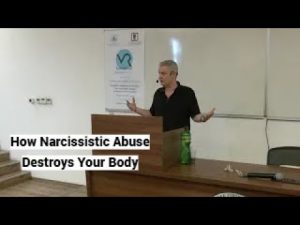
Why Abusers ADORE Your Victimhood! (Clip: Skopje Seminar, May 2025)
Narcissistic abuse profoundly impacts victims, but adopting a victimhood identity limits healing and perpetuates suffering. Understanding the psychological mechanisms behind victimhood reveals why it is both seductive and dangerous. True recovery requires shedding the victim stance, reclaiming agency, and engaging in empowered self-care. By doing so, survivors can transform from perpetual victims into thriving individuals, breaking free from cycles of abuse and finding lasting peace. Why Abusers ADORE Your Victimhood! (Clip: Skopje Seminar, May 2025)









